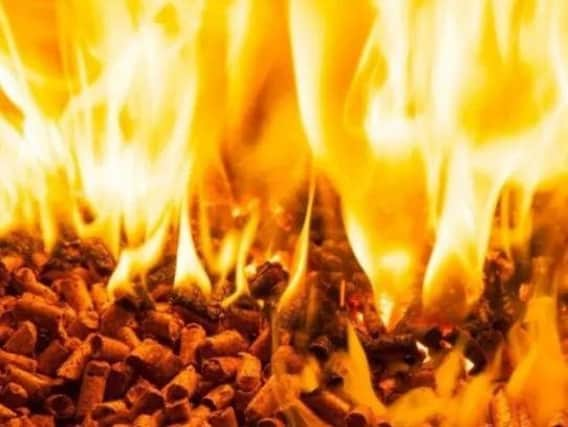RHI boilers running far less after subsidies slashed


In figures which further emphasise the flawed nature of a supposedly green energy scheme, it is now clear that where 10 boilers were running almost around the clock - between 90% and 100% of the total hours in a year – now just one boiler is running at that level.
Under the lucrative uncapped scheme, each of those boilers was getting about £53,500 in subsidies, a figure which has now been slashed to a maximum of £12,764.
Advertisement
Hide AdAdvertisement
Hide AdA further 65 boilers had been run between 80-90% of the year. That has fallen to just one boiler operating at that level of usage last year.
The number of boilers running for 70-80% of the year has fallen from 129 to six, while 213 installations running for 60-70% of the year has fallen to 24.
The figures come from a report by the Northern Ireland Office which expressed continued concern about the way in which Stormont’s Department for the Economy is overseeing the scheme, and in particular the failure to audit every site almost three years after it ran out of control.
The greatest reduction has been in the forestry/wood sector where heat usage has almost halved. Payments to claimants in that sector dropped by 65%.
Advertisement
Hide AdAdvertisement
Hide AdThat largely relates to wood drying operations, an area around which there were particular concerns about some of the usage – although under the legislation at the time such operations were permitted to run boilers almost round the clock, without any limit on how much they could claim.
There was also a large drop in agricultural claims, with 32% less heat being generated, and a 29% fall in heat use by ‘other’ sectors.
Comptroller and Auditor General Kieran Donnelly expressed concern at the slow pace of auditing each of the 2,000-odd boilers.
A pilot audit over the last year inspected 65 boilers at 33 sites, resulting in no installations being deemed as “good”, four “satisfactory”, 17 “weak” and 10 “unsatisfactory”.
Advertisement
Hide AdAdvertisement
Hide AdA further 30 audits targeted at sites about which there were concerns were conducted for Ofgem, which runs the scheme, identifying “issues” in 80% of cases.
The department says it has “just appointed” inspectors who are likely to do 250 inspections in the next year “selected on the basis of a risk assessment”. Mr Donnelly said he was “concerned at the slow rate of progress that has been made to date”.
The report reveals that just three boilers have had their accreditation revoked.
He said that there had been “some progress” in correcting problems with the scheme but that he continued to have “significant concerns” about the operation of the scheme and “some of the weaknesses in controls that continue to exist” and was again qualifying the department’s accounts.
Advertisement
Hide AdAdvertisement
Hide AdHowever, while the cut in tariffs is now protecting taxpayers’ money, it is creating problems elsewhere. Last year the News Letter reported on the extreme distress of some genuine RHI claimants who face the public perception that they are milking a lucrative subsidy when in fact the changes have left them struggling to keep up vast loan repayments which they committed to on the basis of a government guarantee that rates would not be changed for 20 years.
Last night one RHI claimant questioned the report#s assumption that boiler usage has fallen solely due to the subsidy cut. He said that some wood drying operations now just turned off their boilers when they hit the cap at which the subsidy ceased while pellets had risen in price but poultry farmers with a genuinely high heat need were reverting to cheaper gas which they could get from Moy Park.
UUP MLA Steve Aiken said the report confirmed that RHI had encouraged the generation of unnecessary heat, adding that it was “perverse” for a Government environmental scheme to promote behaviour which was “disastrous for our environment”.